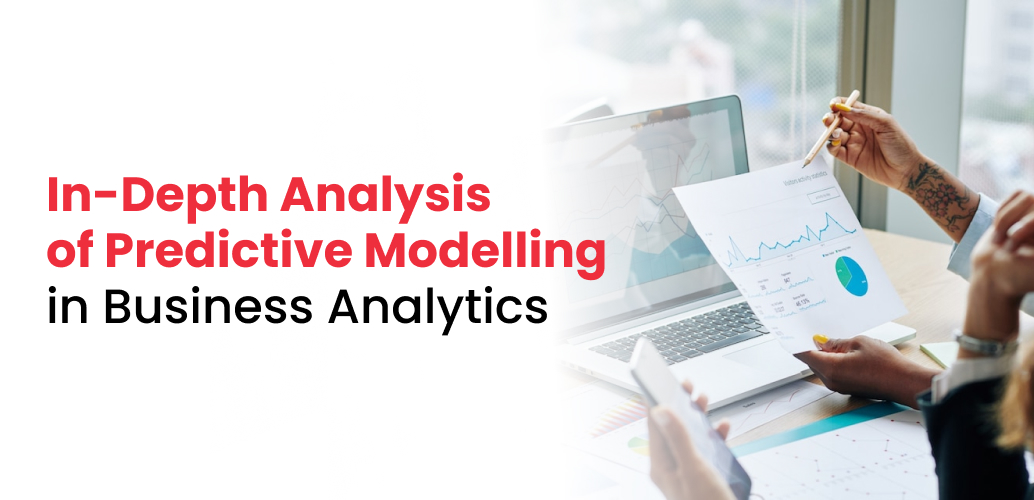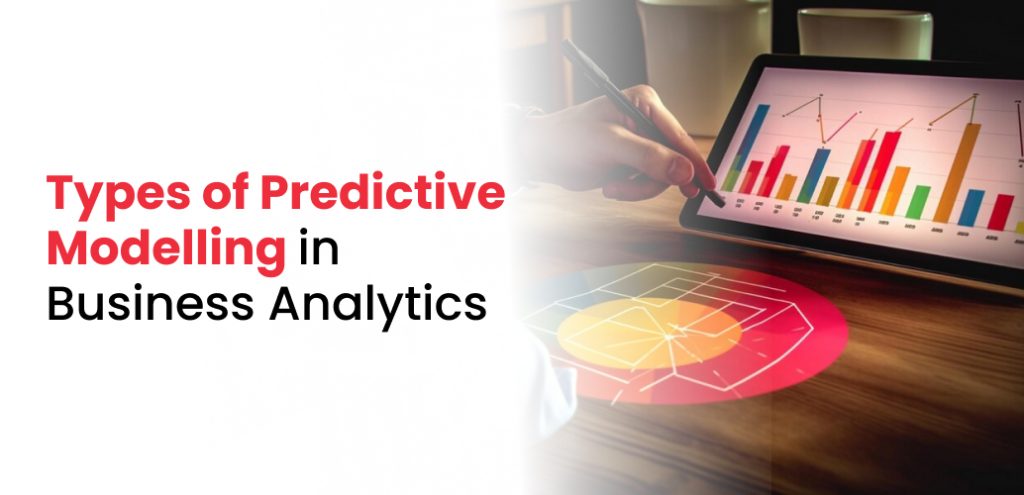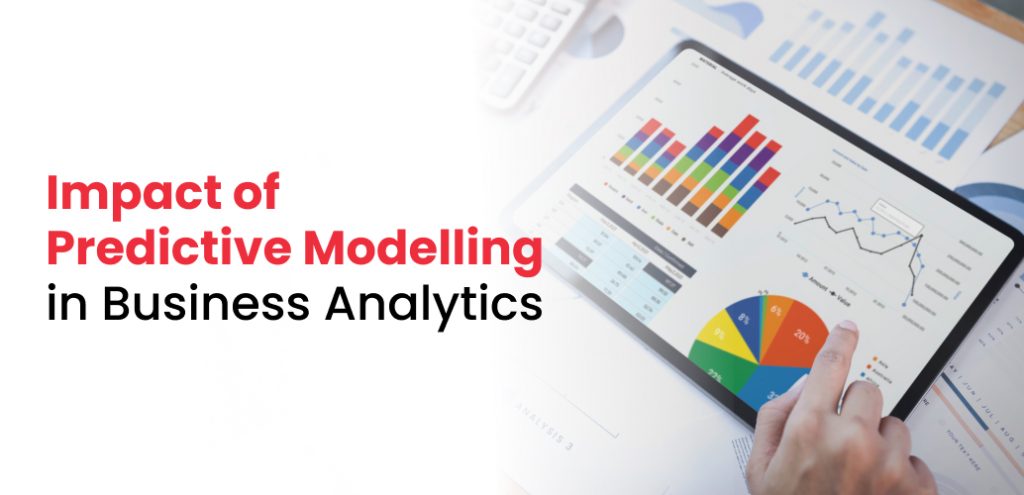Blog > In-Depth Analysis of Predictive Modelling in Business Analytics
In-Depth Analysis of Predictive Modelling in Business Analytics
December 1st, 2023

In-Depth Analysis of Predictive Modelling in Business Analytics
Understanding Predictive Modelling in Business Analytics
Types of Predictive Modelling in Business Analytics
 Let’s uncover the kinds of predictive modelling you will learn in a business analytics online course.
Let’s uncover the kinds of predictive modelling you will learn in a business analytics online course.
 Enrolling in a business analytics certification course empowers you to use complex algorithms and historical data. Let’s understand the impact of predictive modelling in business analytics.
Enrolling in a business analytics certification course empowers you to use complex algorithms and historical data. Let’s understand the impact of predictive modelling in business analytics.
- Linear Regression
- Logistic Regression
- Decision Node
- Random Forest
- Neural Networks
- Support Vector Machines (SVM)
- Time Series Analysis
- Naive Bayes
- Forecast Trends
- Optimise Resource Allocation
- Improve Marketing Strategies
- Boost Financial Planning
- Streamline Operations
- Determine Fraud and Security Risk
- Improve Customer Experience
- Why is business analytics reliant on predictive modelling?
- What are the offerings of predictive modelling used in upGrad Campus’s business analytics online course?
- What kinds of professional prospects can one obtain with competence in predictive modelling?
- After finishing the business analytics online course at upGrad Campus, is placement assistance offered?
Understanding Predictive Modelling in Business Analytics
Predictive modelling is an effective data analysis technique that uses statistical models and mathematical algorithms to forecast future events. Businesses can use historical data to find patterns, correlations, and trends to predict future events or behaviours. By comprehending predictive modelling, organisations can gain a competitive edge, enhance operations, and make well-informed decisions. This analytical method is essential for strategic planning and risk management in several industries, including marketing, finance, healthcare, and more.Types of Predictive Modelling in Business Analytics
 Let’s uncover the kinds of predictive modelling you will learn in a business analytics online course.
Let’s uncover the kinds of predictive modelling you will learn in a business analytics online course.
1. Linear Regression
Linear regression predicts numerical numbers by establishing a linear link between the input and output variables.2. Logistic Regression
Logistic regression is functional in classification problems because it forecasts the probability of an event occurring and is well-suited for binary outcomes.3. Decision Nodes
Decision nodes are arranged hierarchically and utilised for regression and classification, giving decision-making a clear visual depiction.4. Random Forest
A collective learning technique that lessens overfitting in predictions and increases accuracy by combining several decision trees.5. Neural Networks
It consists of interconnected nodes that function as networks to reflect complex data linkages and generate precise predictions, much like the structure of the human brain.6. Support Vector Machines (SVM)
SVM is perfect for classification jobs since it can choose the best hyperplane to divide data points into groups.7. Time Series Analysis
It is essential for anticipating trends throughout time since it focuses on projecting future values based on historical data.8. Naive Bayes
Text categorisation frequently uses the Bayes theorem to estimate the possibility of an event occurring given the presence of another event. Also Read : The Power of Data Visualisation in Business AnalyticsImpact of Predictive Modelling in Business Analytics
 Enrolling in a business analytics certification course empowers you to use complex algorithms and historical data. Let’s understand the impact of predictive modelling in business analytics.
Enrolling in a business analytics certification course empowers you to use complex algorithms and historical data. Let’s understand the impact of predictive modelling in business analytics.






Add a Comment